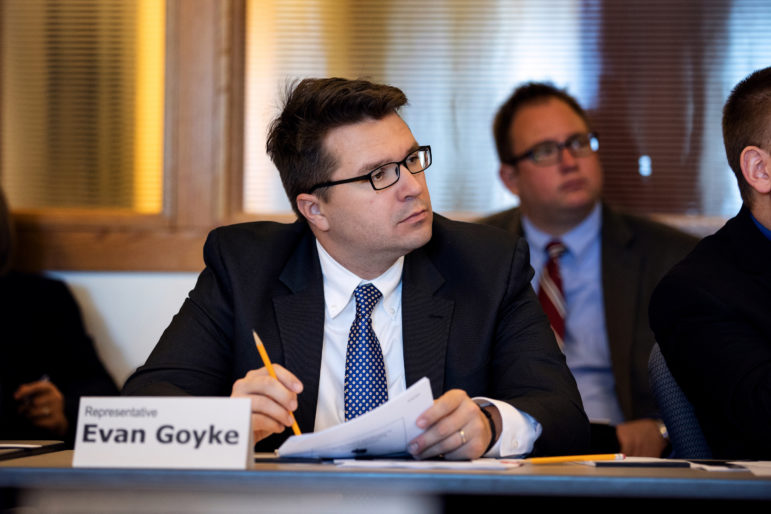Criminal Record Expungement Bill Is Back
Bipartisan bill pushed by Rep. Evan Goyke nearly passed in last session.
The criminal record expunction effort that came oh-so- close to approval in the state Legislature last session is back for another try and one of its chief backers, State Rep. Evan Goyke (D-Milwaukee), said there is reason for optimism.
“A lot of our effort during the last two years was education,” Goyke said. When legislators first considered the idea of giving those convicted of crimes a second chance, “their initial position was cautious and negative,” he said.
The revived bill again has bipartisan support. Other key backers of the measure include State Rep. David Steffen (R-Green Bay), State Sen. Alberta Darling (R-River Hills) and State Sen. Kelda Roys (D-Madison). The four have signed on to a co-sponsorship memo being circulated among other legislators.
An expunction bill last year came within three senators of passage.
Under current law, a person who wants to have a criminal conviction expunged from their record must ask the judge at the time of sentencing, before a judge has any idea how that person does in prison or on supervision. The law also limits the availability of expungement to those less than 25 years old at the time and to those who do not have a felony conviction record. The offense for which expungement is requested must not be a violent felony and must not carry a penalty greater than six years.
The bipartisan bill being proposed would change the law in several ways. It would remove the discriminatory age limit of 25 and would allow the people convicted of crimes to request expungement when they complete their sentences.
“The decision of whether or not to expunge a record should be based on merit and how an individual rehabilitated themselves, rather than an age,” the four legislators said in the memo. “Wisconsin is one of only four states to have an age limit. This bill removes the age limit in order to focus on individuals that have successfully completed their sentence and have not reoffended.”
Other limits, including the types of crimes eligible for expunction, would remain in place.
Once an expunction petition is filed, a judge would review it and either grant or deny it. If denied, a new petition could not be filed for two years.
The bill also makes clear what it means to successfully complete a sentence. That would include completing community services, paying all fines, fees, restitution, and completing any community supervision without revocation, according to the co-sponsorship memo.
The bill has strong support among some conservatives. Americans for Prosperity, for example, “have really made this one of their priorities,” Goyke said.
“We are inching our coalition bigger,” he said.
The bill started in the Assembly last year; this time around, it will go to the Senate first, he said.
Gretchen Schuldt writes a blog for Wisconsin Justice Initiative, whose mission is “To improve the quality of justice in Wisconsin by educating the public about legal issues and encouraging civic engagement in and debate about the judicial system and its operation.”
Court Watch
-
No Unemployment Benefits For Worker Making Homophobic Remarks
 May 17th, 2022 by Gretchen Schuldt
May 17th, 2022 by Gretchen Schuldt
-
Appeals Court Upholds Injunction Against Abortion Protester
 Mar 13th, 2022 by Gretchen Schuldt
Mar 13th, 2022 by Gretchen Schuldt
-
80% of State’s Judicial Races Uncontested
 Feb 20th, 2022 by Gretchen Schuldt
Feb 20th, 2022 by Gretchen Schuldt






















